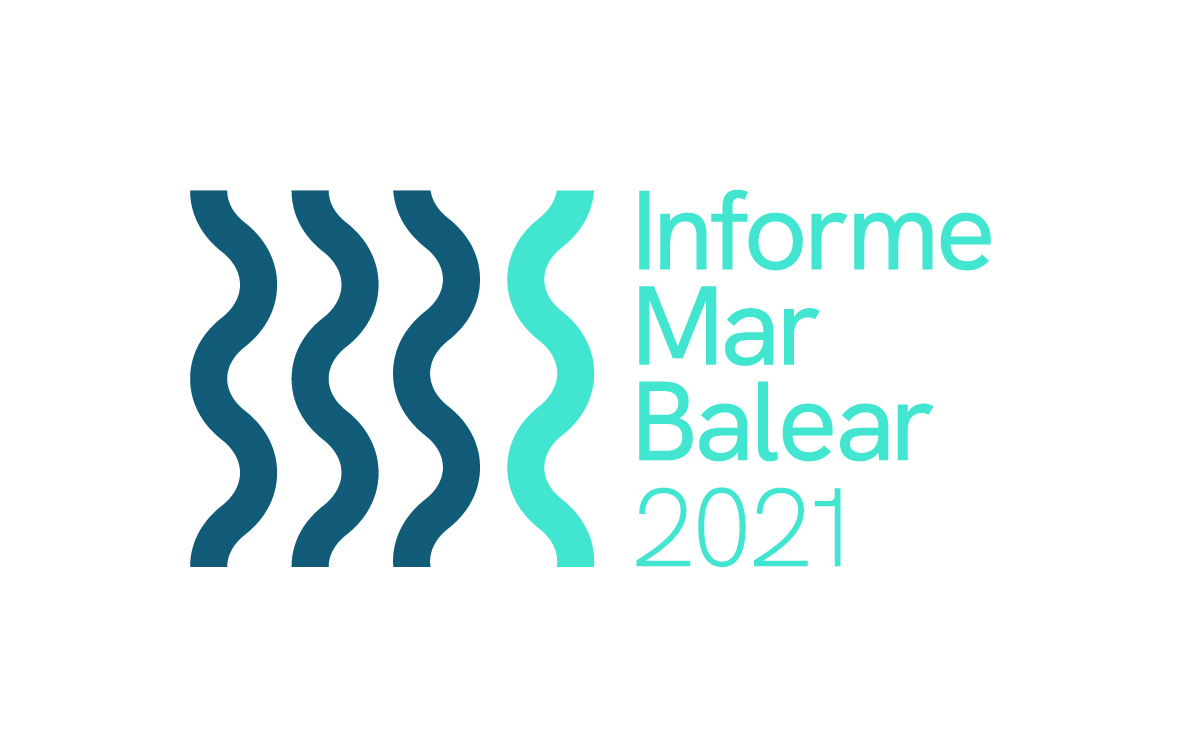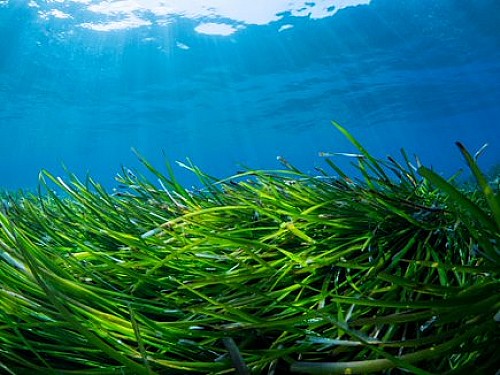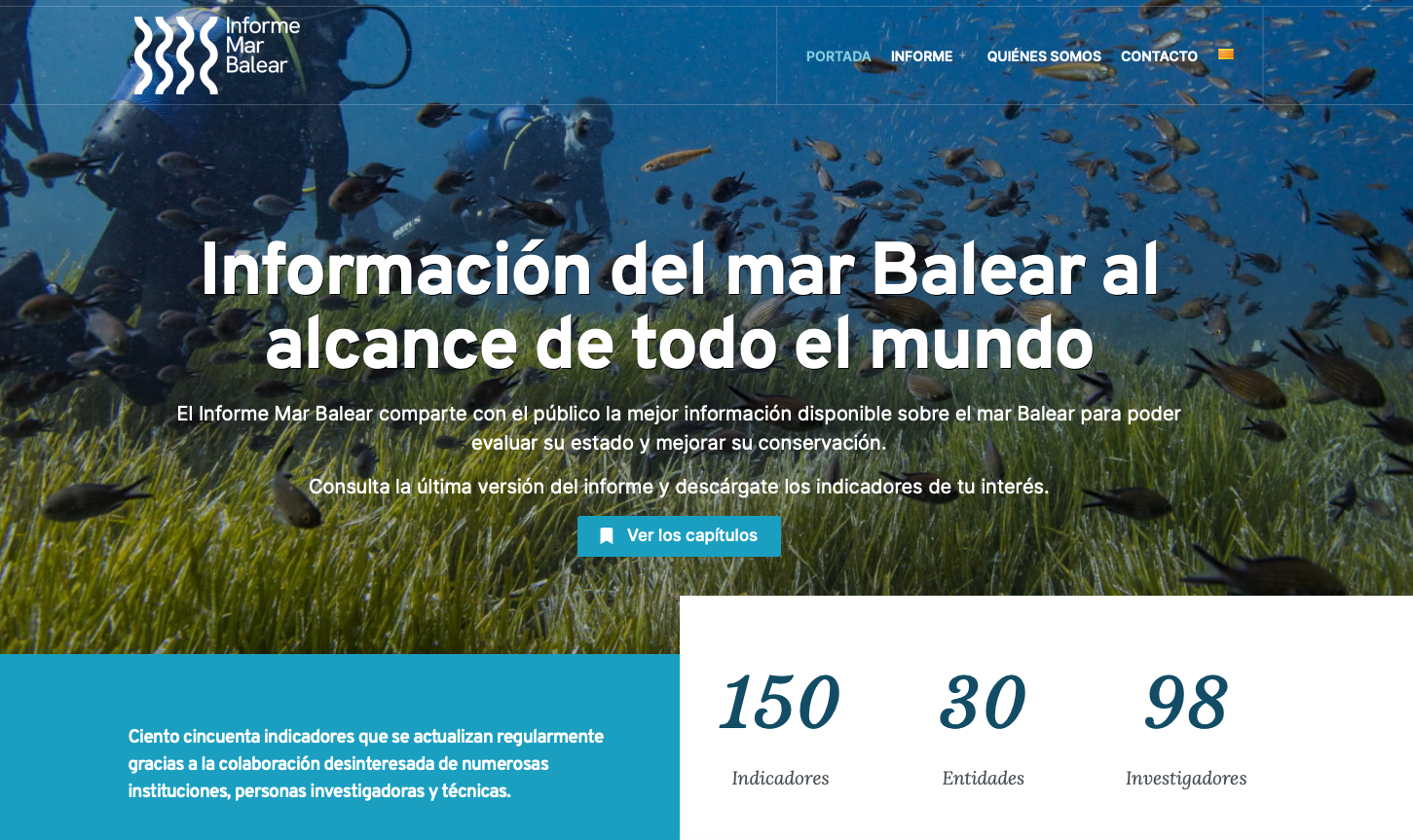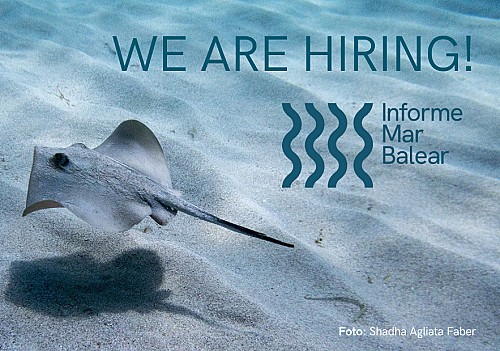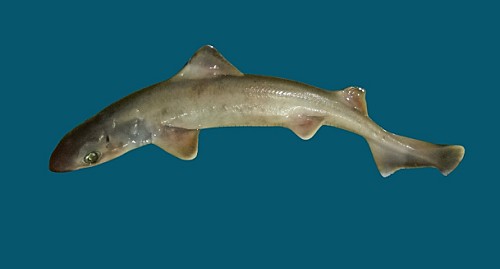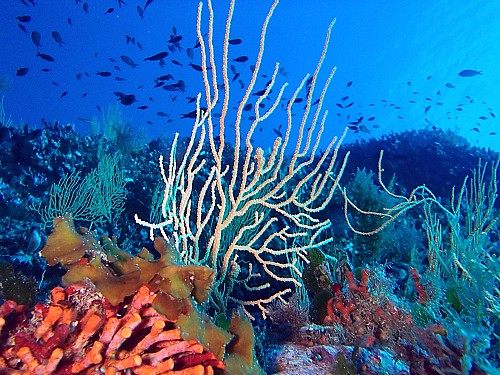Marine experts present new Balearic Sea report with 150 indicators
The Balearic Sea Report 2021 compiles information on the state of the marine environment in order to improve its management and ensure its proper conservation.
Palma, 21st April 2021
The main marine research centres, the Government of the Balearic Islands and the Marilles Foundation have today published the 2021 version of the Balearic Sea Report. A tool that makes publicly available the best available and up to date information on the state of the Balearic Sea.
- The report can be consulted at informemarbalear.org
- It has 150 indicators.
- 30 institutions, both public and private, have contributed data.
- 98 researchers, technicians and civil servants have participated in the report.
The first Balearic Sea Report was published in March 2020. In the 2021 version, half of the indicators from the previous year have been updated and fifty new indicators have been included, such as deep-sea corals, salinity, endangered molluscs, desalination and wastewater treatment, among others.
The Balearic Sea Report mainly includes ecological indicators, such as the state of fish stocks, and information about endangered species such as the European storm-petrel. But it also includes important economic and social indicators, such as the level of investment in marine protected areas, blue economy related jobs or human pressure on islands.
The impact of COVID-19 during 2020 is clearly reflected on indicators related to pressures such as maritime transport, underwater noise, beach use or human pressure index. However, it is still too early to determine whether it has had a significant impact on any species or habitats.
A report accessible to all
In addition to updating and incorporating new indicators, a new web platform has been developed with the aim of facilitating access to the information. The new website is structured around thematic chapters: protected habitats, emblematic species, beaches, water quality, global change, pressures, marine protected areas, fisheries, social response and benefits.
A collaborative project
Through this initiative, the collaboration of scientific institutions and the regional government has made it possible to make available to the public a collective heritage that has been little visible until now, as well as useful reference information for researchers, public and private managers and the general public.
A long-term initiative
This is an objective, evidence-based report with the ambition to be regularly expanded and updated. It is a long-term collective project that aims to bring together new institutions and collaborations. Its value lies not only in the data it collects, but also in highlighting gaps in information that we do not yet have.
Marine research and economic recovery
The collection of quality data by public or private institutions is essential for the management and conservation of the marine environment. The economic prosperity of the Balearic Islands is strongly linked to the state of its marine and coastal environment. Therefore, economic recovery plans must also integrate funding for marine scientific research without which no progress can be made towards better conservation of the Balearic Sea.
The advisory board of the Balearic Sea Report is made up of the following institutions: Marilles Foundation, Centro Oceanográfico de Baleares del Instituto Español de Oceanografía (COB-IEO), Consejo Económico y Social de las Illes Balears (CES), Govern de las Illes Balears (GOIB), Institut Mediterrani d’Estudis Avançats (IMEDEA, UIB-CSIC), Observatori Socioambiental de Menorca (OBSAM-IME), Sistema d’Observació i Predicció Costaner de les Illes Balears (SOCIB) and Universitat de les Illes Balears (UIB).
In addition to the in-kind and contributions of all the institutions, the IMB has received financial support from the Marilles Foundation and Fundatur and it is open to other sources of funding.
Francina Armengol, President of the Government of the Balearic Islands: "The economic future of our islands and the well-being of their citizens depend on the good state of conservation of our sea. The Balearic Islands can become a benchmark in the conservation of the marine environment at a national and Mediterranean level. The Balearic Sea Report, the result of the collaboration of the best experts in marine science in the Balearic Islands, is a tool that will help us to achieve this. The conservation of the sea and marine research are fundamental to the economic recovery of our islands".
Miquel Mir, Regional Minister for the Environment and Territory: "This second edition of the Balearic Sea Report increases the number of indicators and consolidates itself as the reference document for assessing the state of our marine environment. For the Regional Ministry, it is a pleasure and a duty to collaborate in this fundamental tool to take on our challenges as an island nation with respect to the climate emergency".
Raquel Vaquer-Sunyer, Balearic Sea Report coordinator: "In order to conserve our sea we need to have the best possible information on which to base its management. Until now this information was scattered and difficult to access for most citizens and some managers. The Balearic Sea Report fills this gap: it has compiled all this information and made it available to anyone interested in learning about our sea.
Natalia Barrientos, Balearic Sea report researcher: "Our aim is to continue working collaboratively to improve knowledge of our sea year after year".
Anna Travesset, institutional representative of the CSIC in the Balearic Islands: "This report provides very valuable basic information on the state of the Balearic Sea and should serve, above all, to help in the better and more sustainable management of the marine resources of this community".
Toni Quetglas, director of the COB-IEO (Balearic Oceanography Centre – Spanish Institute of Oceanography): "The growing concern about environmental issues (global change, overexploitation of resources, loss of biodiversity) requires the collection of scientific data in order to understand and address these major challenges. The Balearic Sea report is a vademecum for the knowledge and management of the marine environment of the Balearic Islands that is made available to the Administration and society as a whole".
Gotzon Basterretxea, director of IMEDEA-CSIC-UIB: "Undoubtedly, an interesting compilation of the information available on the Balearic Sea, its characteristics, environmental status and pressures, carried out with the aim of contributing to the diagnosis and identification of problems affecting its good environmental status".
Joaquín Tintoré, director of SOCIB: "This initiative contributes significantly to the dissemination of the Balearic Sea; it compiles, synthesises and exposes to the general public topics of interest, from protected habitats to global change and beaches. The bibliographical references and sources of information, mostly from the scientific community of the Balearic Islands, and the direct participation of researchers undoubtedly add value to this publication".
Eva Marsinyach, head of Marine Environment at OBSAM: "This document does nothing but encourage us to fight and work to become an example of sustainable development, integrated management and respect for the marine environment. With the data in hand, we can act accordingly".
Llorenç Huguet, Dean of the Balearic Islands University: "With this initiative, the institutions that generate knowledge are putting it at the service of society to help make the use of marine resources much more respectful of the environment".
Lluís Vallcaneras, Consell Econòmic i Social: "The Balearic Sea Report is an unprecedented milestone in the knowledge of the marine environment of the Balearic Islands, a milestone that requires a great effort on the part of many people. Achieving good indicators, which also have continuity over time, is no easy task. For this reason, it is desirable that it gets the support and the environmental, economic and social recognition it deserves".
Toni Grau, General Directorate for fisheries and marine resources: "Long series of data, collected objectively, regularly and periodically, are essential to understand and manage natural marine systems and to combat misinformation. This is the ambition of the Balearic Sea Report 2021 and all those that will follow".
Aniol Esteban, director of the Marilles Foundation: "The Balearic Sea Report has achieved a lot, but it is still in its infancy; it contains a lot of information, but there are still many gaps. Our ambition is for the Balearic Sea report to become the compass that points the way for the public, private and civil society sectors to move towards a sea and a coast in an excellent state of conservation. Achieving this will require greater commitment and funding from all of us.
Link to download additional documents and resources: https://drive.google.com/drive/folders/1jJK-cXjLQuo5rIctjbbxmQTeFejtjw5Q
For more information: www.informemarbalear.org
Marilles in the media
- 28/10/2025 Ara Balears: "Milers de barques fermades a morts il·legals perjudiquen el fons marí"
- 19/06/2025 Última Hora: "Así es el alga invasora que buscan los científicos en Baleares"
- 22/03/2025 Eldiario.es: "Delfines desorientados y miles de años de posidonia arrasados: la náutica recreativa dispara la presión sobre el Mar Balear"

